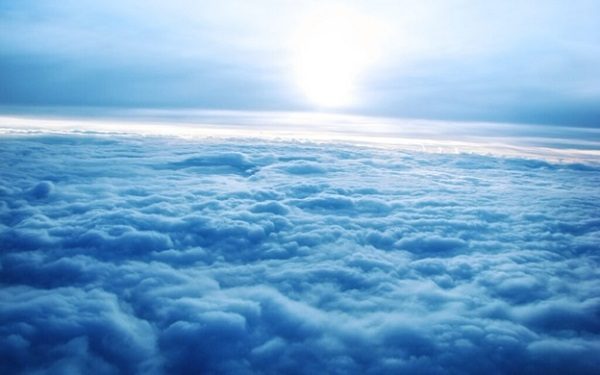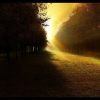Our secularized age aims at involving us in the pleasures of consumerism. It has even turned religion into a consumer item. This is why the latter has been restricted in its functions to customs, symbols and metaphysics. Society doesn’t understand, and doesn’t want to understand, that faith in God provides meaning for the hearts of those who are struggling to live it. These days our participation in the life of the Church is limited, since that requires time. This limitation is achieved by offering temptations that recall the trials of Christ after His baptism in the River Jordan. The society in which we live shows us that it’s indifferent to darkness within the soul. In any case, it doesn’t recognize the soul as the living breath which God has placed within us, but sees it as a purely cerebral function which ceases upon our departure from this life.
Darkness isn’t just the absence of meaning. It’s also sin, not merely as our inability to love God and to observe His will, but also enjoyment of His absence. The faithful, however, don’t accept sin as their natural state of being. They want ‘a little light so that the darkness becomes heaven’ [part of the lyrics of the popular Greek song Χρειάζεται ένα θαύμα (A miracle’s needed)]. And the light comes when we gaze upon the world, nature, things created, as a locus of sanctification by God, where He became human and was baptized in water, to show that everything has the potential of being in communication with Him. Everything, even the darkness within our soul, is transfigured into love, praise, gratitude and new beginnings.
We’re tempted by our era. Survival through stones being turned into bread in any way possible, the power we need to feel, sometimes even putting pressure on God Himself, the triumph of ‘having things’, of having rid ourselves of every trace of sharing, of time, of feelings, of hope, of bounty, purely and simply in order to have a better time, to be less bored, to not feel any burden in our soul, are all ways in which the world requires our freedom from us. It wants us to surrender to it, so that we may be at one with it. To feel that, even if we understand the darkness, at least we’re not alone. That we don’t need to move from the cave to the surface, because ‘the light might be a new tyranny’ (Constantine Cavafis)*.
Christ overcame the temptations, opposing them with the word of God, with humility and with recognition of the truth. He is Himself the light and shows us the way and the path. And everything changes when we have a relationship with Him. If only we allow a beam of light into our soul, He’ll make us see everything differently.
We need to encounter this Christ of the Church in the joy of the feasts. We should pass Him on to our children, to our acquaintances, to ourselves. We must find ourselves again, even if there’s no more than a few of us or, sometimes, only one. The way goes through the wilderness of this world. For our times, it’s hard to perceive what faith is. This shouldn’t dishearten us, but should make us aware, that everything can be sanctified by Christ. But we need its ‘Yes’. And our own ‘Yes’.
* The poem- ‘The Windows’- was written in 1903, but remains topical in our fearful times and bears quotation in full:
‘Under these dark arches where I spend
Wearisome days, I prowl up and down
To find the windows. When a window opens, it’ll be a comfort.
But the windows aren’t to be found, or I can’t
find them. And maybe it’s best that I don’t.
The light might be a new tyranny.
Who knows what new things it’ll reveal?’ [WJL].
You can follow us on Twitter, Facebook, Instagram, Telegram, or Parler

















